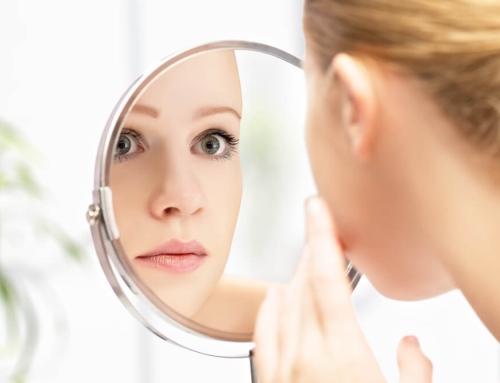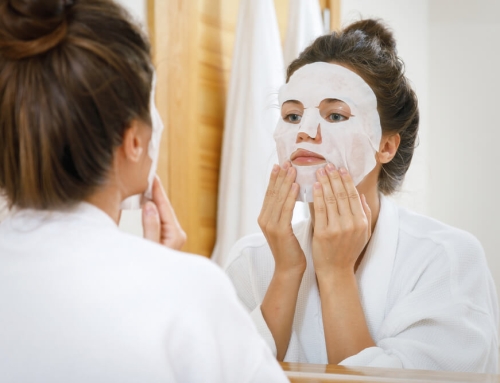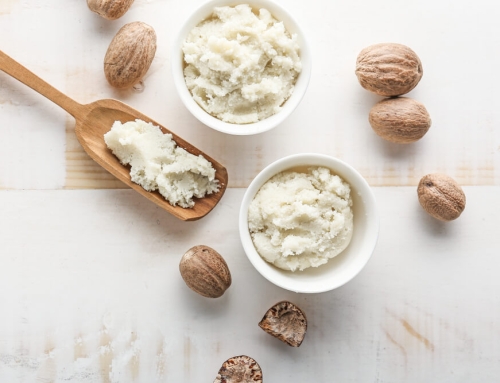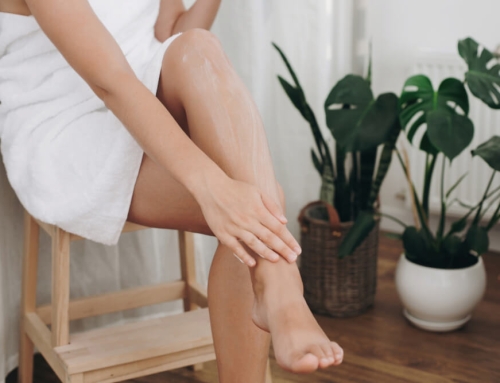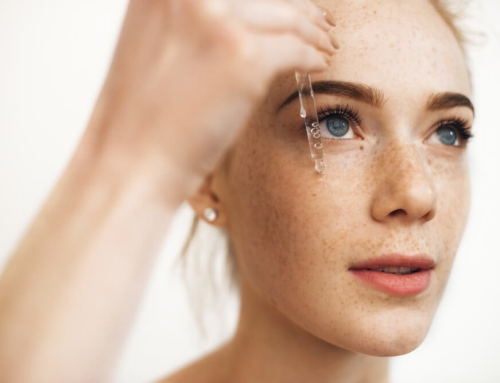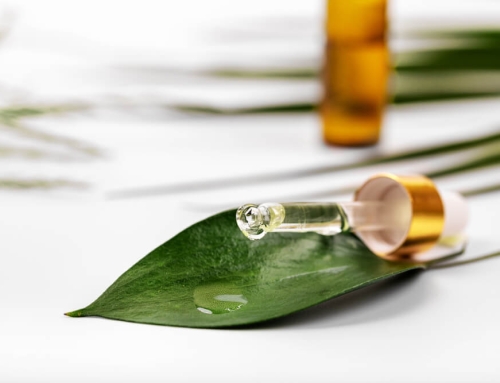Has your skin been feeling a little more sensitive lately? Or perhaps you’ve been dealing with unexplained acne flare-ups, or sudden dryness.
There could be many causes behind this, but one of the most common, and also often-overlooked, is a damaged skin barrier.
The Skin Barrier Explained
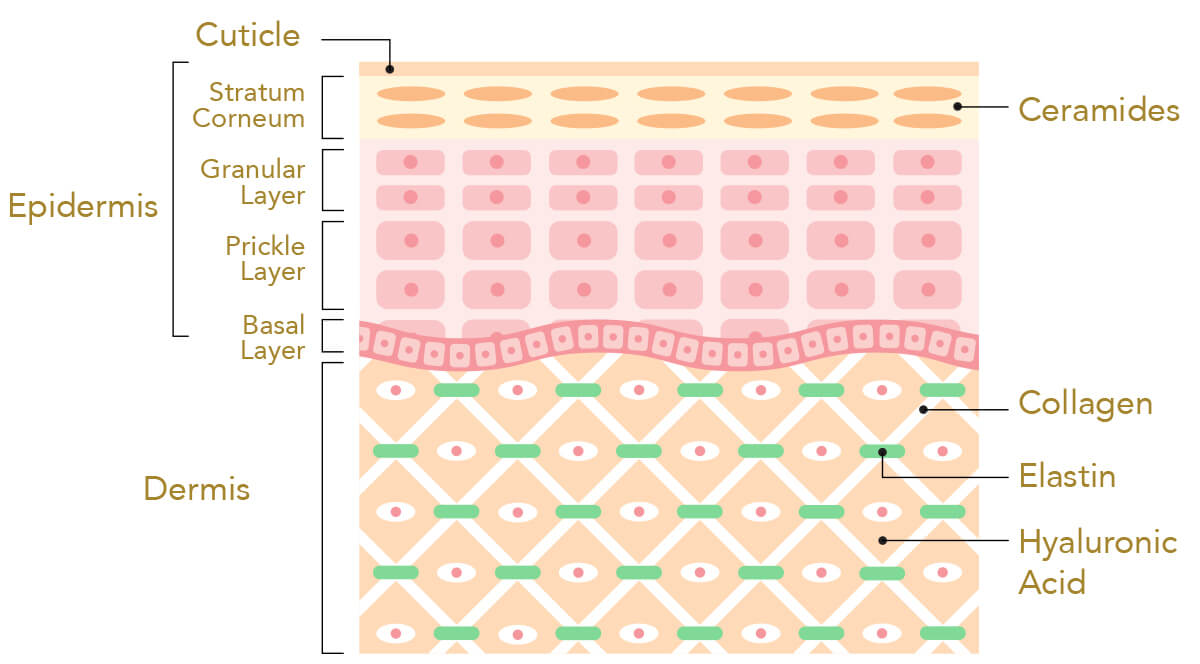
All of your organs have their own way of protecting themselves, and your skin is no exception. Your skin is made up of three main layers, and on the outer edge of the outermost layer sits your skin barrier, otherwise known as the stratum corneum, which is made up of dead skin cells, lipids, and ceramides.
What Does the Skin Barrier Do?
The skin barrier performs two main roles:
- It blocks moisture from evaporating out of the skin and into the air
- It prevents irritants, impurities, and toxic chemicals from entering into the skin
As you can see, the skin barrier is pretty important – it’s basically the key to healthy skin. If your skin barrier has been damaged or weakened in any way, this will immediately show on your skin.
What Damages the Skin Barrier?
The skin barrier can be damaged by a number of different things, including:
- UV rays
- Pollution
- Harsh skin care products/ingredients
- Extreme weather conditions
- Stress
- Genetics
- Aging
This damage manifests in a number of different ways, but sudden dryness and dehydration, along with sensitivities and irritation, are two big signs of a compromised barrier.
What happens if you don’t do anything about it?
The damage will only worsen, meaning so will the health and appearance of your skin. It will also take even longer for you to repair your skin barrier the longer you wait.
Fortunately, repairing and strengthening this vital protective barrier is pretty simple – here’s what you need to do…
Provide a Temporary Barrier
Since your skin’s natural barrier isn’t able to function properly, providing a temporary one will give it some time to heal and regenerate.
How do you provide a temporary barrier?
By keeping your skin moisturized. A thick and rich moisturizer will form its own protective film over the surface of your skin, mimicking the functions of your natural barrier.
Ideally, you need something infused with plenty of plant oils and butters. This applies even to those with oily skin – simply look for botanicals that are known to be non-comedogenic, such as rose hip oil. The 24K Rose Gold Radiant Silk Cream is formulated with this, along with humectants that will help to hydrate, moisturize, and protect, without clogging up the pores.
Go Back to Basics with Your Skin Care Routine
There are so many products and ingredients out there that do more harm than good, yet many people unknowingly slather these all over their skin every day.
If you suspect that your skin barrier has been weakened or damaged in any way, it’s time to take a good look at the products that you’re using.
Products to Avoid
The first thing that you should step away from is any harsh exfoliants, such as face scrubs. They may leave your skin feeling satisfyingly clean, but they literally scrub away at your skin barrier, leaving it weaker each time.
Ideally, stop exfoliating until your skin has started to heal.
Your cleanser is another product worth examining…
Many contain sulfates, which enable the cleanser to form a lather. However, sulfates are also a known irritant that can severely compromise the skin barrier. A cleanser is a must, but make sure that it’s a mild and gentle one you’re using.
Skin care treatments that intentionally damage the skin, such as microneedling, should also be avoided. While they may be effective at targeting a variety of skin issues, with the damage they cause stimulating huge skin healing benefits in the long run, this will be too much for your already-vulnerable skin at the moment.
Keep Stress Levels Down
You’re probably wondering what stress has to do with your skin barrier, but the two are connected in quite a surprising way…
Your body produces a hormone called cortisol whenever you are feeling stressed, and this has been proven to interfere with skin barrier function. It also impairs healing, meaning that it will be next-to-impossible to try to repair your skin barrier if you frequently feel stressed.
How to De-Stress
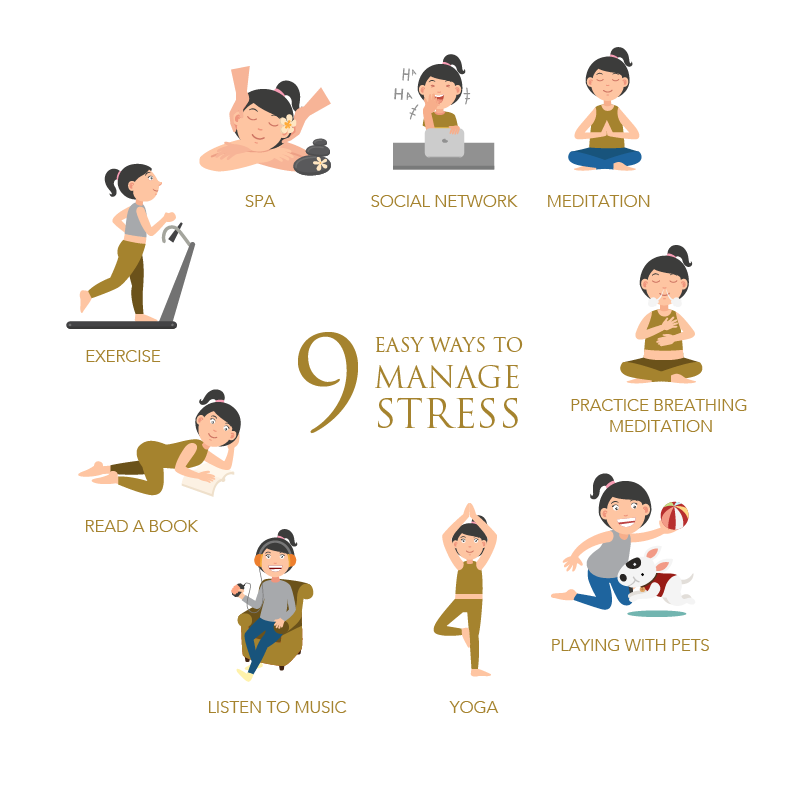
Everyone has their own methods when it comes to de-stressing; what works for one person might not work for another, making it important to try a few different techniques to find the best for you.
Here are a few popular stress reduction ideas:
- Do some exercise, which lowers the amount of cortisol in your body
- Spend some time in nature
- Keep a stress journal to help identify your stressors
- Practice better time management and learn to say “no”, so that you don’t feel overwhelmed with excess responsibilities
- Try meditation or deep breathing exercises
- Share your stresses with friends and family – this will give you perspective and help you to find solutions to any problems you may be dealing with
Use a Toner
Do you use a toner after cleansing?
This is a step that many people often skip, much to the detriment of their skin.
Why do you need a toner?
Toners help in a couple of ways…
They clear away any residue that your cleanser may have left behind, and they also balance out the skin’s pH level.
Your skin pH is something that you should really be paying attention to. If your pH is off-balance, your skin barrier won’t be able to function properly. It will be even more susceptible to damage and dryness, meaning that it is unlikely to heal.
Although cleansing is a must, those very same ingredients in a cleanser that actually clean the skin also disrupt skin pH. Yes, there are many cleansers out there now designed to keep this disruption to a minimum, but chances are that your skin pH will still end up out of balance each time you cleanse.
This is why a toner is such a useful addition to your skin care routine, even if you’re trying to use fewer products. It may not seem like much, but it can make a transformational difference to your skin.
If you don’t yet have a reliable toner, the 24K Purifying Toner is always a good choice. In addition to helping with your skin pH, it also contains several soothing ingredients, including cucumber extract and aloe vera, to help soothe and calm your skin after cleansing.
Strengthen from Within
Topical skin care products are great, but your skin also needs nourishment from within, which is where your diet comes in. While some foods can actually cause a significant amount of damage to your skin barrier, others have quite a healing effect, making it important to understand what you should be eating more of and what you should be avoiding.
Foods to Avoid
You probably already know which foods you should be avoiding – junk, processed foods that are high in sugars and salts are an obvious one, as are foods containing chemical additives, such as colorings – these stimulate inflammation in the body, which impairs the skin barrier.
Foods to Eat More Of
Since your skin barrier largely consists of fatty acids, eating foods that are high in fatty acids will help to give your skin the vital nutrients it needs to thrive. Oily fish are a great source of fatty acids, as are walnuts and flax seed oil.
Vitamins and antioxidants are also important for healing the skin barrier, and these are best found in fresh fruits and vegetables. Try to eat as large a variety of these as possible – all of those different colors point towards a different range of nutrients, so including a rainbow of foods into your diet is the best way to cover all of your bases.
Stay Hydrated
While a moisturizer is a great way to keep your skin hydrated from the outside, nothing quite beats internal hydration. In addition to enabling your skin cells to function properly, adequate hydration also keeps the body detoxified, which prevents impurities from building up in the skin.
Water, tea, and fruit juices, so long as they do not contain too much sugar, are the best drinks to consume. Stay away from too much coffee or alcohol, as these will only dehydrate your skin barrier, compromising it even further.
Turn Down the Temperature
Love hot showers?
Many people do. After all, they’re such a relaxing way to end a long day, especially during the colder months of the year.
However, your skin, especially your skin barrier, doesn’t agree with this…
Hot water strips away those natural oils that make up your skin barrier, leaving it more susceptible to dryness and damage. This is even worse if you take a long, hot shower – your skin barrier really doesn’t stand much of a chance.
Ideally, keep your showers at a lukewarm temperature, or simply as cool as you can handle. The same applies to baths too. You should also make sure that your showers or baths are never longer than ten minutes.
Don’t Forget About Sun Protection
One of the biggest culprits when it comes to skin barrier damage is the sun. Research has found that UV light weakens the skin and dries it out, causing it to crack and break much more easily than it otherwise would have.
The stress that UV radiation causes to your skin cells doesn’t help either, as it makes them less capable of defending themselves against environmental damage.
SPF 30 Year-Round
There are so many different sunscreens out there, making it difficult to know which one you need.
Fortunately, this is easy once you know what to look for…
SPF 30 is a must – don’t go any lower than this. You could potentially go higher, but this won’t usually make a noticeable difference to UV protection. Instead, you would be much better off with an SPF 30 that you reapply throughout the day.
A broad-spectrum sunscreen is also important. This means that it will protect you from both UVA and UVB rays, which is exactly what you need.
It can sometimes make life easier to have a moisturizer that contains SPF, as this cuts back on an extra step in your skin care routine. The 24K Skin Tone SPF 30 is a good one to go for – it’s broad-spectrum and lightweight, meaning that you can easily reapply it throughout the day without your skin feeling weighed down or greasy.
Extra Sun Protection Measures
Your skin is going to need some time to heal its barrier, which means that you should be taking a few extra steps to help it along.
In addition to wearing a sunscreen every day, try to minimize how much time you spend in the sun, especially between 10am and 2pm. This is when the sun is at its highest, meaning that its UV rays are causing maximum damage. If you do have to be outdoors at this time, try to stay in the shade as much as possible.
Sunglasses and a sun hat are also important – the skin around your eyes is much thinner than the skin on the rest of your face. When the skin barrier is damaged in this area, symptoms will be even more visible, and much harder to fix.
Long clothing helps to protect the skin on your body, as this provides another physical barrier between your skin and the sun.
Your skin barrier may be thin, but it’s the only defence your skin has against the world around it. With so many different factors out there causing damage to this all-important layer of skin, it’s important to spend time protecting, healing, and strengthening the skin barrier.


